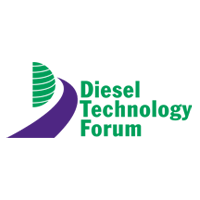Energy Efficient Diesel Engines Noted For Future Energy-Savings Potential
 |
WASHINGTON--The Diesel Technology Forum issued the following statement today on the release of the National Research Council report ‚€œTechnologies and approaches to Reducing Fuel Consumption of Medium and Heavy-Duty Vehicles.‚€???
“This report highlights the immense number of variables, complexity and multi-dimensional aspects to reducing fuel consumption in commercial vehicles. It underscores the importance of every aspect of the total vehicle system in reducing future fuel consumption, everything from the rubber on the road to the driver and everything in between”
‚€œToday‚€™s study highlights the dramatic progress of diesel engine manufacturers in improving fuel efficiency over the last twenty years, and the role that further innovation to clean diesel technology can and must play in the next ten years,‚€??? said Allen Schaeffer, executive director of the non-profit Diesel Technology Forum.
‚€œEnergy efficiency is not a new concept to diesel engine and truck manufacturers. It has been the foundation of their product development to meet customer demands since time began,‚€??? noted Schaeffer. The NAS report highlighted a 15 to 21 percent potential for further advancements in clean diesel engine efficiency possible from 2015-2020.
While making commercial trucks more fuel efficient, manufacturers have also been making them dramatically cleaner. Over the last ten years, emissions from heavy-duty diesel trucks and buses have been reduced by 98 percent for nitrogen oxides ‚€“ an ozone precursor, and 98 percent for particulate emissions. Today‚€™s new heavy-duty diesel truck deploys the most state of the art engine and emissions control systems and has near zero emissions; an amazing accomplishment considering that increased fuel efficiency and lower emissions are near opposite and competing forces in diesel engine design.
Few other technologies have to meet the daunting challenges of a big-rig diesel truck: get the highest fuel economy possible, weigh as little as possible, meet near zero emissions and do it for at least 435,000 miles, be safe and reliable with limited maintenance required, last a long time and move 80,000 pounds up a mountain at 60 miles per hour, run 100,000 to 120,000 miles a year, and do it all at the lowest possible cost.
‚€œThis report highlights the immense number of variables, complexity and multi-dimensional aspects to reducing fuel consumption in commercial vehicles. It underscores the importance of every aspect of the total vehicle system in reducing future fuel consumption, everything from the rubber on the road to the driver and everything in between,‚€??? said Schaeffer.
Because diesel engines offer an unmatched combination of energy efficiency, power, performance and reliability, they power the majority of commercial trucks today and will into the foreseeable future. The coupling of hybrid powertrains with advanced clean diesel engines in some medium duty and purpose-built vehicles such as delivery trucks and buses and refuse trucks will offer additional fuel economy gains. Broader implementation of idle-reduction strategies and technologies could further reduce fuel consumption in long-haul commercial trucks with substantial idling time. The report also discussed taxation and other policies that affect the utilization and operation of trucks, and makes recommendations about the measurement and other policies impacting commercial vehicle fuel economy.
The study was conducted as a result of a provision in the Energy Independence and Security Act of 2007 requiring for the first time in history for the US Department of Transportation to establish fuel economy standards for medium heavy duty vehicles. The pre-publication report is available at http://www.nap.edu/catalog/12845.html.
ABOUT THE DIESEL TECHNOLOGY FORUM
The Diesel Technology Forum is a non-profit national organization dedicated to raising awareness about the importance of diesel engines, fuel and technology. Forum members are leaders in clean diesel technology and represent the three key elements of the modern clean-diesel system: advanced engines, vehicles and equipment, cleaner diesel fuel and emissions-control systems. For more information visit www.dieselforum.org.


